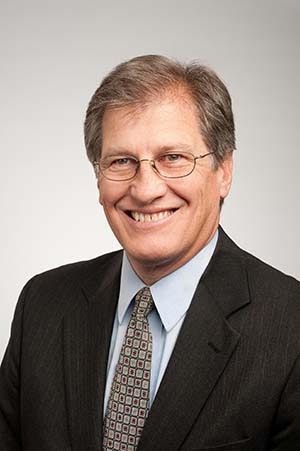The nominee to be Maine’s next public advocate, who represents the public’s interests at the Public Utilities Commission, got unanimous support from a state legislative committee Tuesday.
William Harwood, a seasoned utilities lawyer in Maine who’s now a senior advisor in Gov. Janet Mills’ energy office, would fill the advocate role at a busy time in state energy policy as the PUC works on issues related to Central Maine Power, Maine’s climate change goals and more.
Before recommending he be confirmed by the state Senate, the legislature’s Joint Committee on Energy, Utilities and Technology questioned Harwood on his experience and outlook for the advocate role, particularly as it relates to electric service.
Harwood was optimistic that he could push to keep costs low for ratepayers while advancing the state’s climate plans, including wind and solar energy growth. He said he’d factor in affordability and the need to reduce fossil fuel consumption in order to strike that balance and minimize subsidies for new forms of energy.

“We consume $4 billion worth of fossil fuel in the state every year. The legislature has made a decision that we need to reduce that amount,” he said. “I respect that decision, but it doesn't mean at all costs.”
Asked about his time representing major utilities for the Portland-based law firm Verrill, Harwood said his job as an attorney is always to advocate for his clients without personal prejudice. He also pledged to prioritize low-income ratepayers, which state law requires the advocate to do.
“We really need to make sure that the utility rates do not put people who are having financial difficulties in a worse spot than they already are, and I will be looking at ways to address that,” he said. “We can't have people defaulting on their utility bills simply because they don't have the funds to pay them.”
Harwood also answered a question related to a ballot initiative, which could go to a vote later this year, that would tell the PUC to find CMP and Versant Power “unfit to serve” under state law, and direct the utilities to sell their assets to a new, consumer-owned nonprofit utility.
The questions came from Bowdoinham state Rep. Seth Berry, a Democrat who sponsored a version of that plan that passed the legislature but was vetoed by Gov. Mills last year.
Berry asked Harwood whether he felt the “fitness to serve” provision of state utilities law was well understood enough to be used. Harwood said he didn’t know of a time it had been invoked, but gave his thoughts on what it meant.
“In my view, the duty to serve and provide safe, reasonable and adequate service is at the core of that. … These utilities are monopolies. There are no alternatives,” he said. “If we get to a point in which a utility consistently fails to provide safe, adequate and reasonable service, then the fitness to serve statute is there. And I assume at that point, we would have to decide whether or not that utility has lost its franchise rights and should be sold to another entity.”
Harwood also noted that the PUC has “had significant cases involving the quality of service,” likely referring to a series of state fines, audits and investigations of CMP for issues with billing, reliability and customer service in recent years. The Office of the Public Advocate is typically a party in such cases, providing input on behalf of the public to help the PUC make decisions.
If confirmed by the full state Senate later this session, Harwood would succeed former advocate Barry Hobbins, who retired last summer after four years in the job. Hobbins was a former Democratic state lawmaker nominated as advocate by former Republican Gov. Paul LePage.



